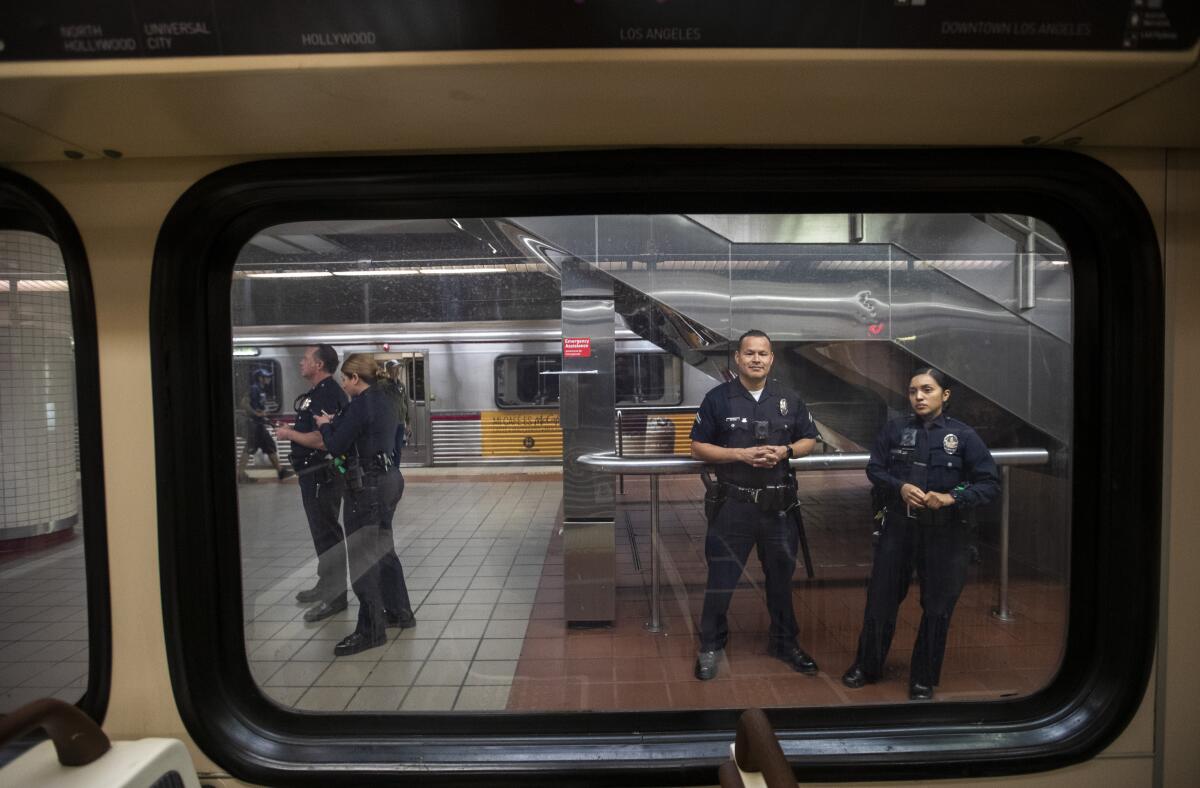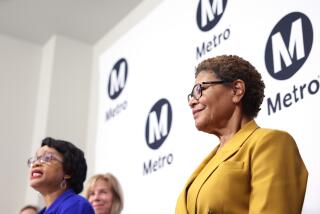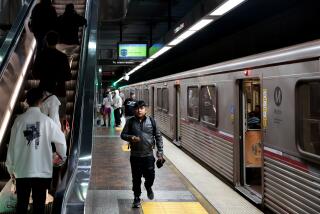LAPD officers call in absent for nearly 700 transit-policing shifts in one week

Dozens of policing shifts on Los Angeles County’s transit system went unfilled last week after Los Angeles Police Department officers called in absent nearly 700 times, the Metropolitan Transportation Authority said.
The absences, for overtime shifts with premium pay, came after Chief Michel Moore temporarily froze overtime for the LAPD.
The department spent $40 million in overtime during a week of protests over police brutality, systemic racism and the death of George Floyd, Moore told officers earlier this month. He said future overtime would be paid out with time off, rather than cash.
The LAPD’s $369-million, five-year contract to patrol Metro buses and trains in L.A. includes an agreement to staff 1,008 shifts per week, said LAPD spokesman Josh Rubenstein. Those shifts are filled by officers working overtime, he said.
From June 12 to June 19, LAPD officers called in absent for 696 transit policing shifts, Metro spokesman Rick Jager said. Most were filled through substitutes, but 171 went unfilled, he said.
It costs nearly $650 million over five years to police L.A. County’s transit system. Activists and community groups argue the money could be better spent on free fares and improved services.
The Los Angeles County Sheriff’s Department and the Long Beach Police Department, which patrol the rest of the transit system, did not have scheduling problems last week, officials said.
Some LAPD officers canceled their shifts after they learned they would be paid with time off, not with cash, said Dustin DeRollo, a spokesman for the Los Angeles Police Protective League, the union that represents rank-and-file officers.
“It was a huge shock,” DeRollo said.
Other officers were sick, or were tired after working consecutive 12-hour days during the demonstrations, said Ron Dickerson, Metro’s deputy executive officer for system security and law enforcement. He said he there was “no kind of rebellion ... no ‘blue flu,’ that type of thing.”
Officers do not have to explain why they are canceling their scheduled shifts, and they could have called in for “a hundred different reasons,” Rubenstein said.
Once Metro pays LAPD, officers will have the option of converting their time off into cash, Rubenstein said.
“Based on past history, you’ll get paid up to six months later,” DeRollo said. “Frankly, there’s a trust issue right now, with how officers feel because of how quickly the about-face happened.”
Metro’s policing contract does not include any penalties for not meeting the required staffing levels, Rubenstein said. If the absences continue, he said, Metro officials could demand in writing that LAPD fix the issue.
When Metro overhauled its policing system three years ago, the LAPD’s bid for the lucrative contract relied heavily on overtime. Providing overtime shifts would be more enticing to officers, and would be cheaper for Metro than paying the full cost of their salaries and benefits, officials said.
Critics questioned the plan at the time, saying a reliance on overtime could create a police force that didn’t really know the system.
The new policing plan — which shares duties among the Sheriff’s Department, LAPD and Long Beach police — almost doubled the number of uniformed officers on the system.
The approach has recently come under fire from advocates who want Metro to scale back police spending and spend more on homeless outreach workers, better transit service and free fares.
More to Read
Sign up for Essential California
The most important California stories and recommendations in your inbox every morning.
You may occasionally receive promotional content from the Los Angeles Times.











